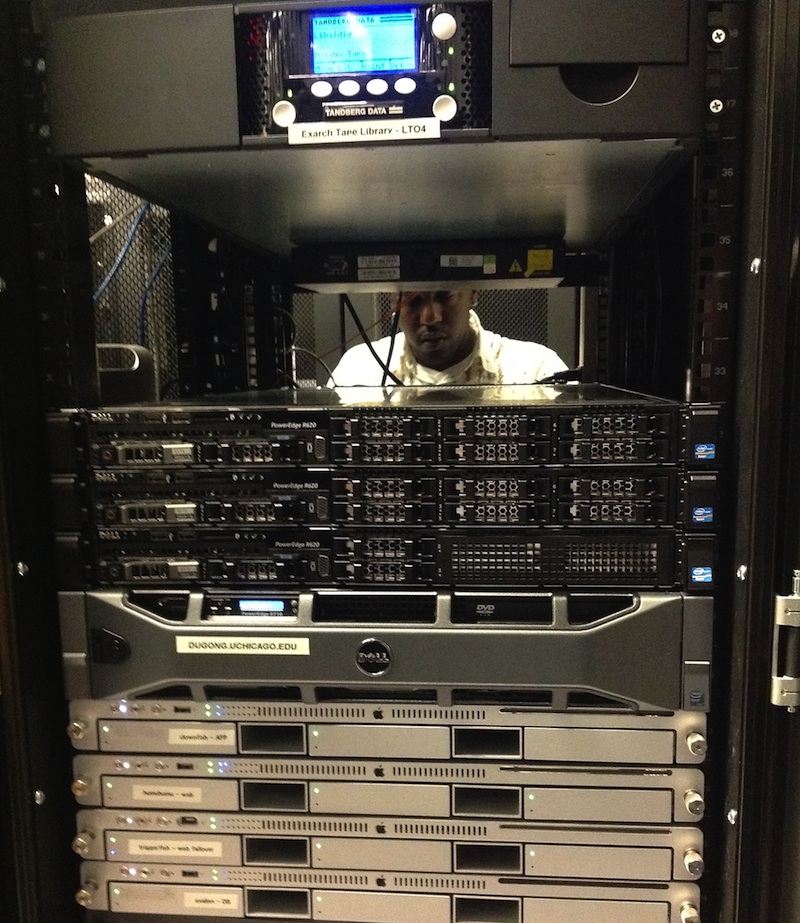Arts & Humanities IT provides our computing infrastructure using a combination of third party/off campus services, IT Services provided solutions, and where necessary in house hardware. The following page is an overview of the software and hardware underlying the Division’s computing services. This information is intended for tech savvy users who are curious how their services are provided and as a reference for users who know what they are looking for to shop for potential services.
This document is not exhaustive and is subject to change. We routinely add new services in response to specific needs and phase out older services as better alternatives become available. If you have a computing infrastructure need that is not directly addressed by the following information, please reach out to us. We may know of someone on campus who is running such a system or may be able to consider offering it as a new service.
Our philosophy for computing infrastructure is to avoid unnecessary duplication of services if possible. We work with IT Services, the Research Computing Center, and other centralized providers of computing infrastructure to identify and support services they provide that meet the needs of the Arts & Humanities Division. In some cases we will step in as an additional layer of support for centralized services (providing user account management, setup, and troubleshooting). In cases where there are no central services that meet the needs or price points of the Division we will deploy the appropriate hardware and software infrastructure necessary to provide those services.
In-house Infrastructure

Web Services
Drupal
The Division uses Drupal for most of the sites that we and our affiliates use. These sites support CNetID based authentication. More details about the Drupal hosting environment can be found on our Drupal Hosting Guide and the “About our CMS hosting” section of our Affiliate Program page.
Lucian (WordPress)
We run a WordPress network. Our WordPress install is generally kept at or near the latest software version. It uses CNetID based authentication. More details about our WordPress & general CMS environment can be found in the “About our CMS hosting” section of our Affiliate Program page.
Application Services
Administrative Applications
For internal administrative applications (Tracking of academic appointments, student degree progress, course scheduling, etc) we use a mixture of FileMaker Pro applications and web applications built on Ruby on Rails & Ember.js.